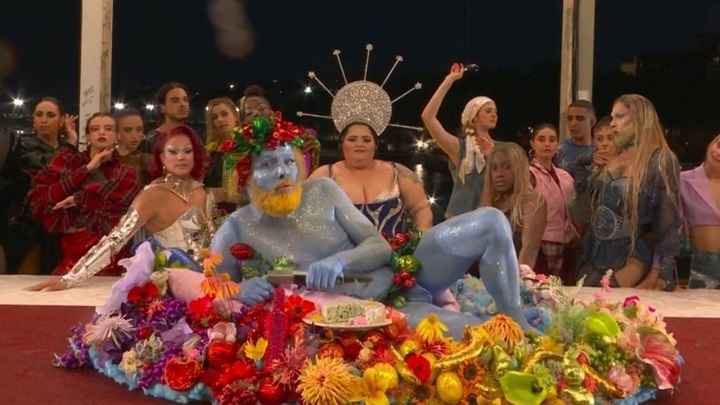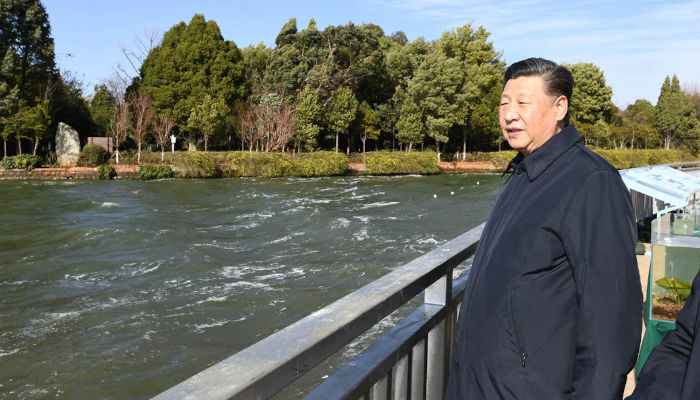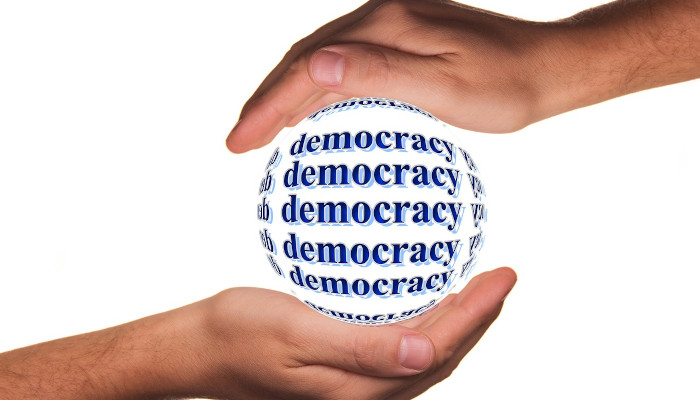
China’s army loyalty may need a better ideology, but this could depend on a trilemma — Negotiations, Alternative, or North Korea.
Recent American fumbling with tariffs has given China more political elbow room (https://www.appiainstitute.org/articles/america/where-is-trump-going/ ). Still, Beijing has three choices about how to handle America’s challenges—negotiation with the US and the rest of the world regarding trade, currency, and territorial claims; promoting a global alternative ideology like the USSR last century; or isolating itself like North Korea.
It’s NAN—Negotiations, Alternative, North Korea. China may try to find a way to blend these three choices, as it is currently doing, but eventually, it might be compelled to choose one. It’s about what People’s Republic of China (PRC) wants to be in this world.
It most likely will involve brinkmanship, with the threat and deterrence of the formidable (on paper) PLA (People’s Liberation Army).
Here is the rub. The international press is abuzz with rumors of the detention for corruption of He Weidong, vice chairman of the Central Military Commission chaired by President Xi Jinping. It’s the latest in a series of similar arrests over the past few years. It will possibly not be the last, as scores of senior PLA officials could be investigated now.
The charge is apparently corruption, a broad term covering political disloyalty to the top leader but also a genuine interest in monetary returns.
The corruption problem has plagued the Chinese military since Deng started his reforms almost fifty years ago. It is structural; power comes from the barrel of a gun, but why is the gun wielded, and against whom, the internal or external enemy?
For example, soldiers in America risk their lives for America and its democratic values. In China, why? For communism—not really. For China? Not quite. China is represented by the party, but who is the party? Xi Jinping is the top leader. So, should Chinese soldiers die for Xi? Many may prefer money to Xi.
Mao addressed this issue with the personality cult.
Cults
The Red Army fought for communism against the Nationalists and for the nation against the Japanese. The army, as in all successful uprisings in Chinese history, was the key element to taking power. The party was the offspring of the army, not the other way around, like with the Soviet Revolution.
After the establishment of the PRC, communism turned out to be just the name of another Chinese dynasty, and Mao devised a personality cult to buttress his power.
The army would fight for the emperor just like they did for thousands of years, or as the Japanese military did in World War II. Since the PLA was at his service, Mao used it for political infighting during the Cultural Revolution.
Subsequently, Deng needed to get the army out of factional politics, which involved giving them money. The plan took different shapes and forms over the following decades but stuck. It had one constant—winning the army’s trust and support in return for economic advantages.
However, an army motivated by money is not ready to fight for the country or its leader. Now Xi needs a fighting and loyal PLA because threats have become real, and as the war in Ukraine proves, battles are still a bloodbath, not a videogame.
If money is removed from the PLA’s equation, it’s unclear what the army would be loyal to. Is it to Xi? Then, could a personality cult work now like it did 70 years ago? The Chinese have changed a lot.
Without an ideal, every general is for himself and may turn against the leader if the opportunity arises. The PLA is back in factional politics.
Perhaps He or Admiral Miao Hua, a Xi loyalist arrested last November, had a political agenda. In the present system (see https://www.appiainstitute.org/articles/america/china-is-coming-to-war-is-the-us-ready/ ), Xi’s advisors may have a vested interest in suggesting anti US policies which, if they fail, can help topple Xi and get them to the top position. It happened with Lin Biao in 1971 against Mao.
It doesn’t mean that China lacks soldiers willing to die. Hundreds of Chinese mercenaries in Ukraine demonstrate there is a possible pool. The Russian experience shows there are ways to woo and coerce the poorest into the army ranks and files as cannon fodder. China has millions of potential volunteers from the countryside or provincial towns.
Still, the hanging question remains – how to motivate officers and generals.
In Russia, President Vladimir Putin offered a return to a neo-czarist order with the promotion and canvassing of the Russian Orthodox Church. As an extra, neo-czarism has an appeal to the Western ultra-right.
Then, Xi may need to pick a letter in the NAN acronym to gear the army for its task. Scores of self-appointed neo-Confucian philosophers beat the big drum of a Chinese order to challenge the Western one. However, the proposal de facto pushes China into a North Korean mode while Xi has not chosen his path.
If Xi chooses to offer the world an alternative global view, such as international comm-Confucianism, his army ideology must be ready. If the negotiation is clinched, another ideology will be needed.
Indeed, there are many grey areas between the three picks, and Chinese leaders may try to straddle between them. But again, the PLA’s real capability and loyalty to their leadership could depend on the right choice.









